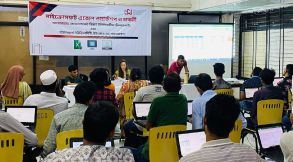This project aims to document the dependence of individual consumption on demographic characteristics and evaluate the importance of secular demographic trends as a driver of structural transformation. The objective is to tie together the two most striking empirical regularities of economic development: demographic transition and structural transformation. The first is a shift from a high-mortality, high-fertility demographic regime to a low-mortality, low-fertility one: labeled the demographic transition, it implies drastic changes in the demographic composition, such as a decline of younger individuals and an increase of elderly women as a share of total population. The second empirical regularity, structural change, is the shift of consumption expenditures, value-added, and employment across broad economic sectors: from agriculture to manufacturing and then from manufacturing to services. In particular, the food share of total expenditures is declining in per-capita income. The objective of this work is to enquire on one of the many ways these two phenomena might interact: if demographic characteristics, such as age and sex, affect consumption patterns, then the evolution of age and sex structure ("demographic trends") due to the demographic transition should affect the sectorial allocation of total expenditures. That is, is the demographic transition a force upon structural change?
The data cover 1.5 million individual households from 20 countries across the development spectrum, with observations spanning over a decade. This data is used to run reduced formula estimations of the relationship between demographic characteristics and consumption expenditures. The same data are also used to calibrate a demand-side, quantitative model centered around the PIGL demand system (Boppart, 2014), a natural choice due to aggregability properties and the ability to capture all key drivers of structural change. Finally, a counterfactual analysis allows estimation of the magnitude of the different drivers of structural change.
This work provides insight into an underexplored, albeit significant, driver of structural change. Compared to the key drivers, such as increases in income and shifts in relative prices, demographic is a predictable driver in the medium-to-long run: the demographic structure of a country 25 years in the future is already (mostly) defined by the extant population. Knowledge of the forces that will affect future demand patterns is necessary to develop optimal economic policy, and knowledge of a (relatively) predictable driver is even more so.
The project documents a strong relationship between individual age-sex characteristics and food expenditures. In particular, food expenditure shares of household total expenditures are increasing in the age of individual members. Furthermore, an additional female household member increases the food share more than a similarly aged male would. The quantitative model shows that the long-run evolution of demographic structure represents a significant slowing down force upon structural transformation out of food expenditures: this "demographic effect" accounts for up to 80% of the remaining income effect.






















































